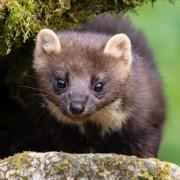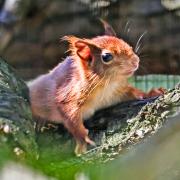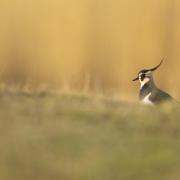The gardeners’ friend is in decline, but there are ways we can all help these special mammals
This much-loved creature, natural pest controller and gardeners’ friend, has declined in Britain by 30 per cent in the last 10 years alone and there are now thought to be fewer than one million hedgehogs left in the UK.
The nation’s gardeners are being encouraged to unite to reverse this worrying trend. Wild About Gardens Week (26 October to 1 November) is the annual celebration of garden wildlife hosted by the The Wildlife Trusts and Royal Horticultural Society.
This year they are teaming up with Hedgehog Street, a campaign run by British Hedgehog Preservation Society and People’s Trust for Endangered Species to highlight how gardeners can help our hedgehogs.
To encourage people right across Britain to think about how hedgehog-friendly their gardens, schools and community spaces are, this year’s Wild About Gardens Week will honour the humble hedgehog with practical and simple opportunities to get involved.
These include the following action points:
? A national call to action to create a network of ‘hedgehog highways’ by making holes in fences (a handy template can be downloaded from the Wild About Gardens Week website).
? A downloadable new booklet, available from the website, will demonstrate steps you can take to help hedgehogs in your garden.
? A competition to design the best hedgehog home with three categories: individual, group and school. Prizes range from a trail camera to a visit from a hedgehog expert.
Sue Young, Head of Conservation at Kent Wildlife Trust, said: “We all need to help these special mammals and there’s so much that gardeners can do to reverse their decline.
“You can cut a small hedgehog hole at the bottom of your garden fence, leave wild nesting and hibernation areas, form log and leaf piles, avoid using slug pellets, take extra care with strimmers – and carefully check your bonfire before striking that match!”
Hedgehog facts
? Today, there are estimated to be fewer than one million hedgehogs (Erinaceus europaeusare) left in the UK. The main causes are thought to be: declining hedgerow quality; the over-management of parks and green space; loss of gardens to paving anddecking; reduced insect prey from chemical use in gardens and on farmland; loss of grazing land; the fragmentation of land by roads and fencing; and increasing density of native predators.
? Adult hedgehogs travel between 1-2 kilometres per night over home ranges between 10-20 hectares in size.
? Three-quarters of all hedgehogs die during their first winter. Those that survive can live for up to four or five years.
? Hedgehogs are great swimmers but struggle to climb out of steep-sided ponds.
? Diet consists mainly of beetles, caterpillars, earthworms, slugs, snails and other small invertebrates. They will, however, eat small mammals, birds’ eggs and almost anything edible!
Find out more
For more information about how you can help hedgehogs, go to: wildaboutgardensweek.org.uk or call Kent Wildlife Trust on 01622 662012 or email info@kentwildlife.org.uk
w



























